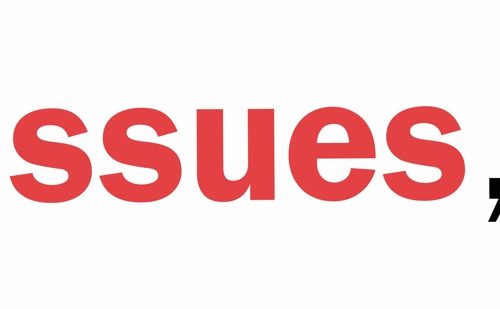 The news just came out today that the Supreme Court has decided to hear Hobby Lobby’s case against Obamacare’s contraceptive mandate. I have written extensively on this site about the battle that Hobby Lobby has been engaged in for over a year now. In short, Hobby Lobby has been asking for relief from Obamacare’s requirement that they violate their religious beliefs.
The news just came out today that the Supreme Court has decided to hear Hobby Lobby’s case against Obamacare’s contraceptive mandate. I have written extensively on this site about the battle that Hobby Lobby has been engaged in for over a year now. In short, Hobby Lobby has been asking for relief from Obamacare’s requirement that they violate their religious beliefs.
Obamacare’s mandate is one of the most egregious violation of religious liberty that I have ever seen. As a result of this law, the United States Government forces Christian business owners to pay for abortion inducing drugs in their employees’ insurance plans. It doesn’t matter that the law violates their religious liberty to conduct business in a way that is consistent with their conscience. Obamacare mandates that these Christians comply or face fines that will put them out of business.
The owners of Hobby Lobby are Christians, and they have said that they cannot in good conscience participate in ending innocent human life. Nor do they believe that the federal government has a right to force them to do so—which is precisely what Obamacare forces them to do. So they have taken their case to the courts, and that effort has made its way all the way to the top.
Hobby Lobby and others in their class will now press their case before the highest court in the land. What’s at stake? Whether or not the federal government will be allowed to force Christians to violate their consciences. In other words, there is much on the line in this case, and you can be sure that we will be watching very closely.
Oral arguments will likely be heard in March with a decision following in June. Stay tuned.
Previous Posts on Hobby Lobby’s struggle:
Does anyone care what happens to Hobby Lobby? – December 28, 2012
Do morning-after pills cause abortions? – December 29, 2012
Should Hobby Lobby pay the fines? – January 2, 2013
Remembering Chuck Colson’s call to civil disobedience – January 2, 2013
Owners and Execs of Hobby Lobby Speak Out – January 3, 2013
————————-
[For more on the Christian conviction of Hobby Lobby’s owners, see below.]




16 Comments
Roy Fuller
And if we extend religious liberty protections to corporations, what will prevent other such employers from claiming they cannot cover blood transfusions, because the owners are Jehovah’s Witnesses, or to reject mental coverage because they don’t believe in it? How is it preserving religious liberty by allowing employers to impose their religious views on their employees regarding what they employees can purchase with their compensation, which they have earned? Why can some evangelicals not see that a victor for Hobby Lobby (and other making similar claims) will open the door to many other claims by companies wanted to avoid government mandates by claiming a religious exemption?
Nate Schlomann
Roy, the real issue is you’re a statist. If you think there is anything wrong with any examples you just mentioned, you do not really believe in freedom. A Jehovah’s Witness employer SHOULD be able to deny coverage for blood transfusions. An employer SHOULD be able to not provide coverage for mental health issues. I wouldn’t work for them and hopefully they would go out of business, but that is the price of freedom. It’s actually quite a wonderful thing that built our country. The root issue is you don’t really believe in freedom.
Nate Schlomann
Also, what we should be doing is de-regulating health insurance so that it does not have to be tied to employers, which is very much an anti-freedom setup.
James Stanton
Anti-freedom? De-regulating employer health insurance would be far more disruptive to individuals and families than Obamacare because it affects far more people. It actually makes no sense as a concept as it would take a law (regulation) to get rid of what is mostly a voluntary system of employer-provided health insurance. If you study the history of health insurance in this country you’ll discover that businesses began offering health insurance as a benefit often in lieu of wage increases in competition with other employers. I’m sure employers would love to cut costs but people do not like mass change of this sort. It’s simply cost-shifting and theft from labor.
Roy Fuller
Perhaps another example might clarify: Do you believe that an employer should be able to deny medical treatment to a person who contacted AIDS as a consequence of a homosexual lifestyle, because of the employer’s religious beliefs about homosexuality? Any why limit this to health care – can employers refuse to comply with any regulation which might go against their religious beliefs? Do we want the government in the business of deciding which religious beliefs are valid (whatever that might mean)? I value freedom very much, but your freedom would permit employers to exempt themselves from many, if not most, regulations if they conflicted with the employers beliefs. Are there any limits to what an employer might be able to claim exemption from, based upon the owner’s religious beliefs? The Citizens United decision gave corporations free speech rights, will corporations (for profit, non-religious entities) now have religious liberty rights granted them? The First Amendment, as well as the rest of the Bill of Rights, is about individual rights. I realize supporters of Hobby Lobby want the focus kept on the religious family who owns Hobby Lobby, but this lawsuit is about Hobby Lobby, the corporation.
Nate Schlomann
Roy, I really do believe in freedom, not convenient freedom. Employers should be allowed, as a term of employment, to deny cancer treatment to anyone with red hair who is below 6 feet tall. That would be terrible and I would hope they would go out of business quickly, as I’m sure they would.
You’re defining the issue incorrectly when you discuss the government deciding which religious beliefs are valid. The government shouldn’t be interfering at all.
But again, this is why it is wrong that we have regulations and government interference that mean most health care is tied to employers. That is not a good situation, and not one that would have developed without government intrusion in to the market.
James Stanton
“But again, this is why it is wrong that we have regulations and government interference that mean most health care is tied to employers. That is not a good situation, and not one that would have developed without government intrusion in to the market.”
This is inaccurate as to actual American history. Without employers offering health insurance we would have a far more statist healthcare system.
Roy Fuller
Nate, I can appreciate your consistency in application of your principle. There are times when we need to think through unintended consequences. James is certainly correct when he point out that you are incorrect about healthcare tied to employment – that is most certainly not a result of government intrusion.
Nate Schlomann
I’m back simply to say that I don’t think you guys (James and Roy) understand this situation nearly as well as you seem to think you do. The government (fed and state) absolutely works in cohort with corporations to limit options and keep a situation in place where most American’s health care is tied to their employment. The market is not free for other options – a situation only possible due to government regulation. This is a huge coup by the corporations, and one they spend much lobbying dollars to keep intact.
Chris Ryan
We the People of the United States, in Order to form a more perfect Union, establish Justice, insure domestic Tranquility, provide for the common defence, promote the general Welfare, and secure the Blessings of Liberty to ourselves and our Posterity, do ordain and establish this Constitution for the United States of America.
Union. Justice. Peace. Security. Welfare. Liberty.
See? There’s more to the Constitution than just Freedom. There’s also Welfare.
God bless Welfare. God bless Obamacare. And God bless you. Have a great Thanksgiving!
buddyglass
To play devil’s advocate…nothing says you have to utilize the insurance your employer offers. Can always buy your own. Or, potentially, but supplemental insurance just to cover “blood transfusions”.
Or, prior to ever taking a job there, you could look at the fact that their insurance doesn’t cover blood transfusions and say, “No thanks, I’ll work somewhere else.”
Roy Fuller
And if we are going to go down this road where employers can decide specific medical insurance benefits, then we should move away from an employment-based system of medical insurance, and towards a single-payer system.
It has not always been true that a person can always buy their own insurance, but the ACA is correcting that. And if Hobby Lobby and similar groups prevail, employers may begin dropping coverages for long-time employees. It is easy to say that people should look for other work if they disagree, but that is often very difficult.
buddyglass
“And if we are going to go down this road where employers can decide specific medical insurance benefits…”
It’s always been that way. Some employers cover IVF, for instance, while others don’t. Their choice.
“then we should move away from an employment-based system of medical insurance, and towards a single-payer system.”
I’m not sure single-payer is the answer, but I am all for moving away from a system in which many/most people get their insurance through their employer. It obscures the true cost of insurance, which makes it easy for folks who get insurance through work to pretend the cost of health insurance is a non-issue.
“It has not always been true that a person can always buy their own insurance…”
Sure it has. Assuming you can afford it and aren’t uninsurable due to a pre-existing condition.
Roy Fuller
I was thinking of persons who have been deemed uninsurable due to a pre-existing condition.
Pingback:
Pingback: